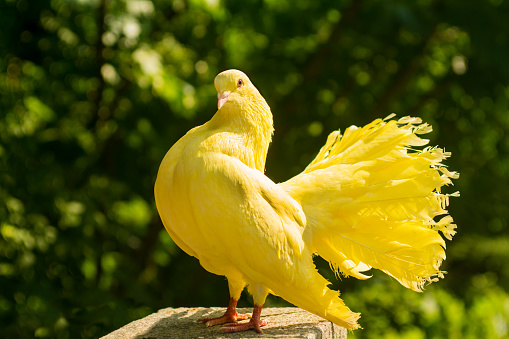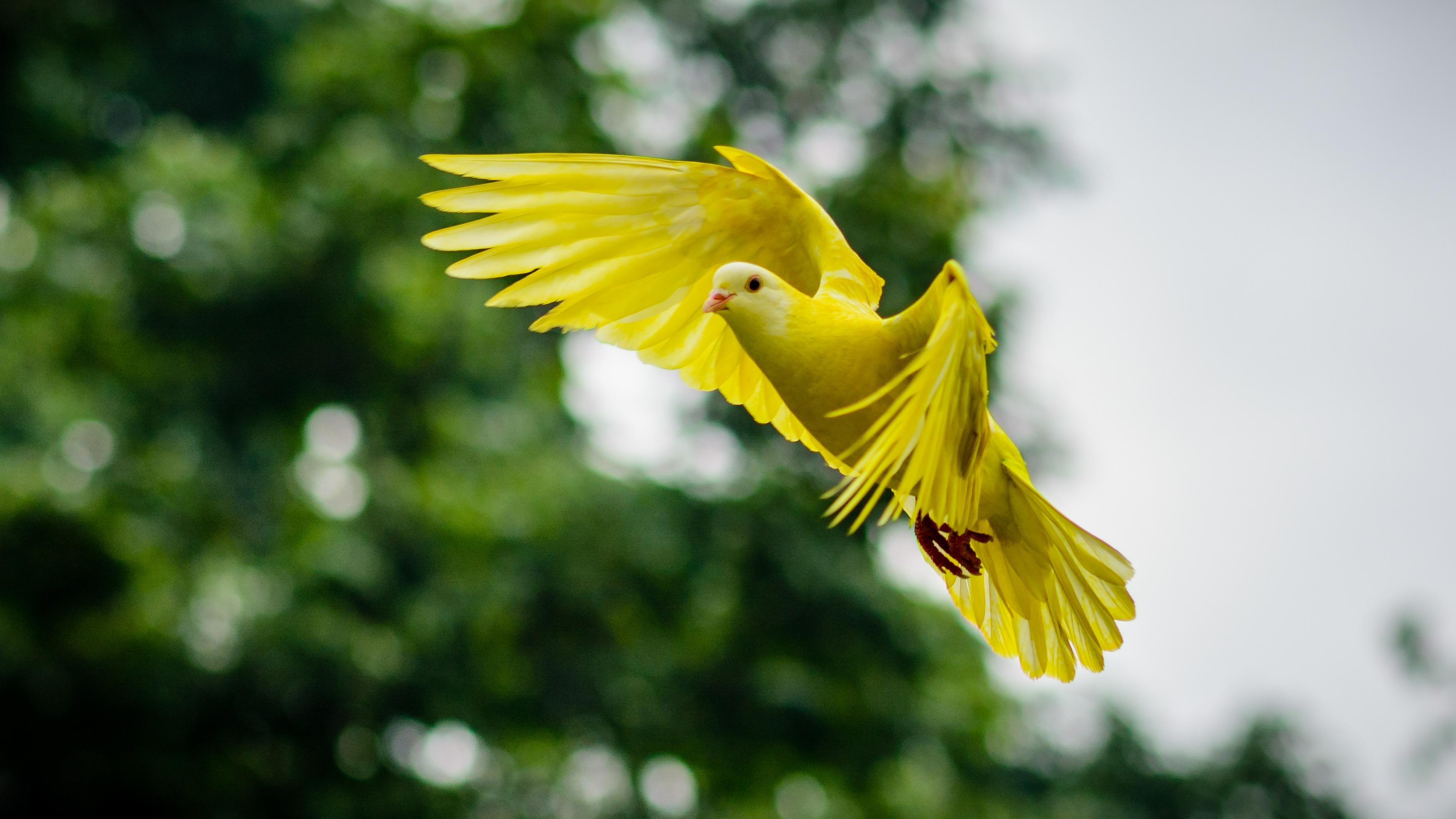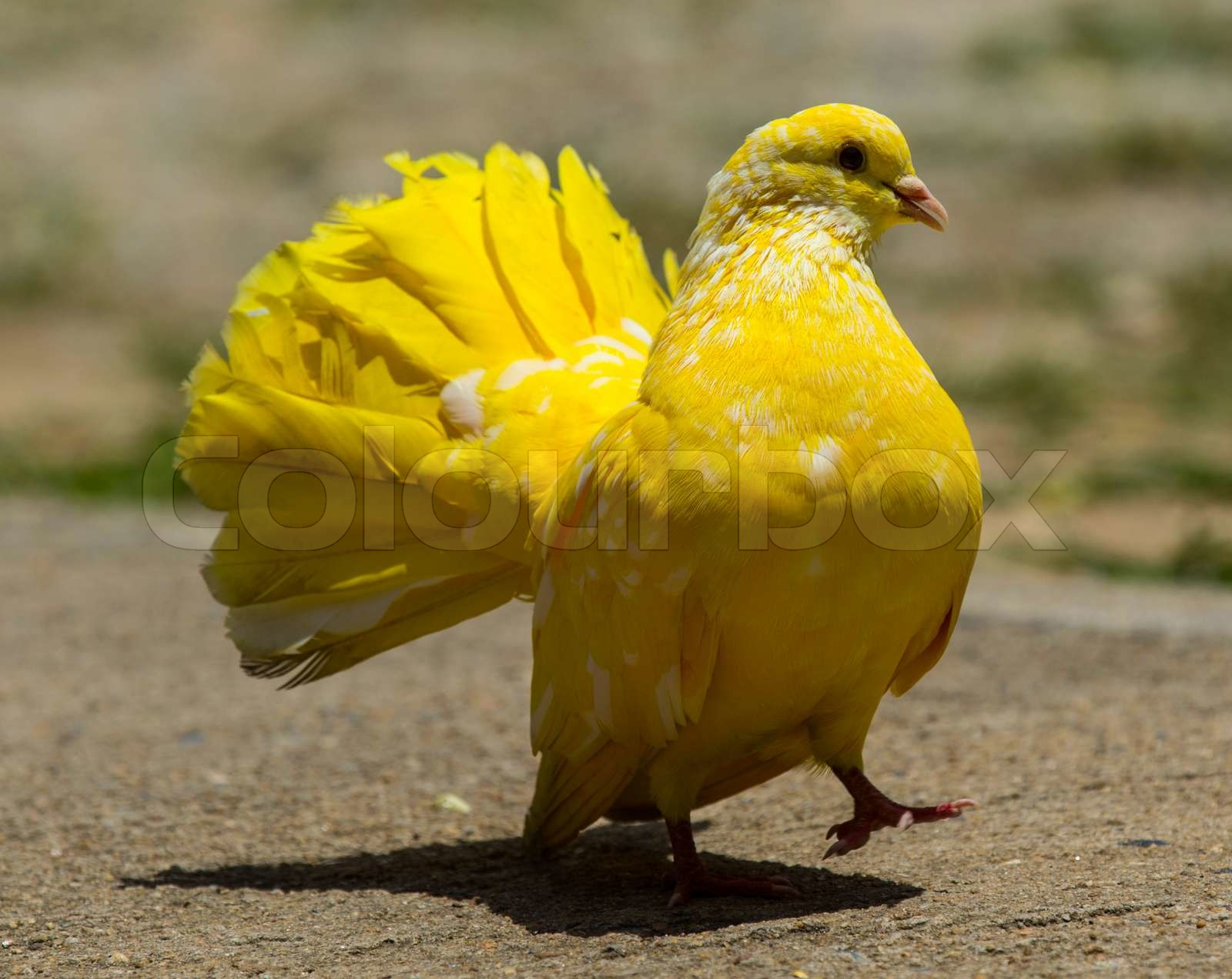The Yellow Pigeon, also known as the “Golden Dove,” is a rare bird species with a unique and vibrant appearance. With its distinct beauty and limited population, this bird has captured the attention of researchers and bird enthusiasts worldwide. In this article, we will explore the Yellow Pigeon, from its physical characteristics to its habitat and conservation status.

The Yellow Pigeon is similar in size to the common pigeon, measuring around 30-35 cm in length. What sets this bird apart is its bright yellow plumage, creating a sense of freshness and prominence in its surroundings. The wings of the Yellow Pigeon have a small black spot at the tips, adding an intriguing contrast. Its beak and legs are also yellow, accentuating its overall color perfection.

Habitat and Distribution: The Yellow Pigeon is native to Southeast Asia, primarily found in countries such as Vietnam, Laos, and Cambodia. It typically inhabits tropical forests and grassland areas where it can easily find food sources such as seeds, fruits, and small grasses.

The Yellow Pigeon is currently facing a concerning decline in population. Habitat destruction and illegal hunting are the main factors contributing to its endangered status. Presently, the Yellow Pigeon is listed as “Endangered” by the International Union for Conservation of Nature (IUCN), and conservation efforts are underway to ensure the survival of this species. Various conservation measures, including habitat protection and captive breeding programs, are being implemented to mitigate the threats faced by the Yellow Pigeon.

The Yellow Pigeon stands out among its avian counterparts with its striking yellow plumage and unique characteristics. As a rare and endangered species, it calls for urgent attention and conservation efforts to safeguard its existence. By raising awareness and taking active steps towards protecting its habitat, we can contribute to preserving the beauty and diversity of our natural world for future generations to admire and appreciate.

